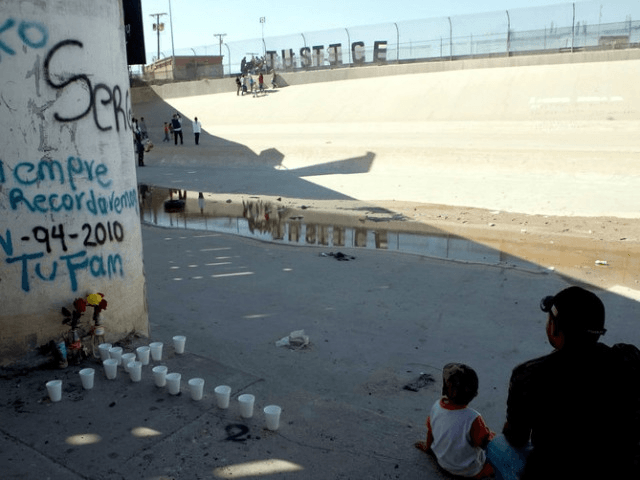WASHINGTON—The Supreme Court set aside an appeals court decision involving the fatal border shooting of a Mexican national by a U.S. Border Patrol agent, sending the case back down for further proceedings on possible violations of constitutional rights and whether the agent is personally liable to pay money to the Mexican citizen’s family.
In 2010, Sergio Hernandez was a 15-year-old Mexican national, who with a group of teenage friends would play a daredevil game of running across the U.S.-Mexican border and touching a fence on the American side, then retreating. Border Patrol Agent Jesus Mesa arrived and detained one of Hernandez’s friends when he was on American soil.
Although the parties dispute the reason for the shooting (the U.S. agent says the teenagers were throwing sharp rocks at his head, endangering him), all parties agree that during this encounter Mesa fired two shots across the border, one of which fatally struck Hernandez.
The Court emphasized that because this appeal came from a motion to dismiss the case filed in the trial court at the very beginning of litigation, that appeals courts must treat as completely true all of the factual allegations made by the plaintiffs. In other words, when a person files a lawsuit alleging that certain facts broke the law, then if a court is going to dismiss the case right away before any evidence is offered, then the court is making the determination that even if later evidence would prove all those allegations to be true, the law is still on the defendant’s side, so the case should be thrown out without further ado.
Thus at this initial stage of litigation, as claimed in the legal complaint filed in the case, “Hernandez was unarmed and unthreatening at the time,” even though Agent Mesa insists that he was under attack by the large rocks.
The first issue in the case is whether the Mexican parents of the victim may sue for money the individual Border Patrol agent involved in the shooting as part of a possible Fourth Amendment violation, in a type of claim called a Bivens action. The U.S. Court of Appeals for the Fifth Circuit held that the agent’s actions did not violate the Fourth Amendment, so it did not need to consider whether a Bivens claim could properly be asserted for a cross-border shooting.
The Supreme Court recently raised the bar for Bivens claims in Ziglar v. Abbasi. So the High Court took the opposite approach from the appeals court’s approach, remanding that issue back to the Fifth Circuit to determine if, under Abbasi, the possibility of a Bivens claim is so out of the question that the judiciary need not make any new precedent one way or the other about whether Fourth Amendment rights apply to shooting a foreigner on foreign soil.
Another issue is whether the Border Patrol agent is entitled to what is called “qualified immunity” if he violated Hernandez’s rights under the U.S. Constitution’s Fifth Amendment.
Qualified immunity “shields officials from [financial] liability so long as their conduct does not violate clearly established … constitutional rights of which a reasonable person would have known,” the Supreme Court wrote in its “per curiam” opinion, quoting a 2015 case. The court continued by quoting a seminal case on this issue, Saucier v. Katz, where the court held in 2001 that “in determining whether a right is clearly established, [the question] is whether it would be clear to a reasonable officer that his conduct was unlawful in the situation he confronted.”
The Fifth Circuit here had held that Agent Mesa was immune because Hernandez was “an alien who had no significant voluntary connection to the United States.” The Supreme Court vacated that part of the decision, because Agent Mesa did not know those facts at the moment he pulled the trigger. “Facts an officer learns after the incident ends—whether those facts would support granting immunity or denying it—are not relevant.”
The justices sent back that issue, as well, to the appeals court for further study because Hernandez’s family was also making a Bivens claim against Agent Mesa for a potential Fifth Amendment violation.
Justice Clarence Thomas dissented, writing, “I continue to adhere to the view that Bivens and its progeny should be limited to the precise circumstances that they involved.” Therefore he would hold definitively that Bivens does not apply to any aspect of the case, and thus that the courts need not consider any Fourth Amendment, Fifth Amendment, or qualified immunity questions, instead affirming the appeals court’s decision and ending the case immediately.
Justice Neil Gorsuch did not participate in this case, having joined the court after the case was argued.
The case is Hernandez v. Mesa, No. 15-118.
Ken Klukowski is senior legal editor for Breitbart News. Follow him on Twitter @kenklukowski.

COMMENTS
Please let us know if you're having issues with commenting.